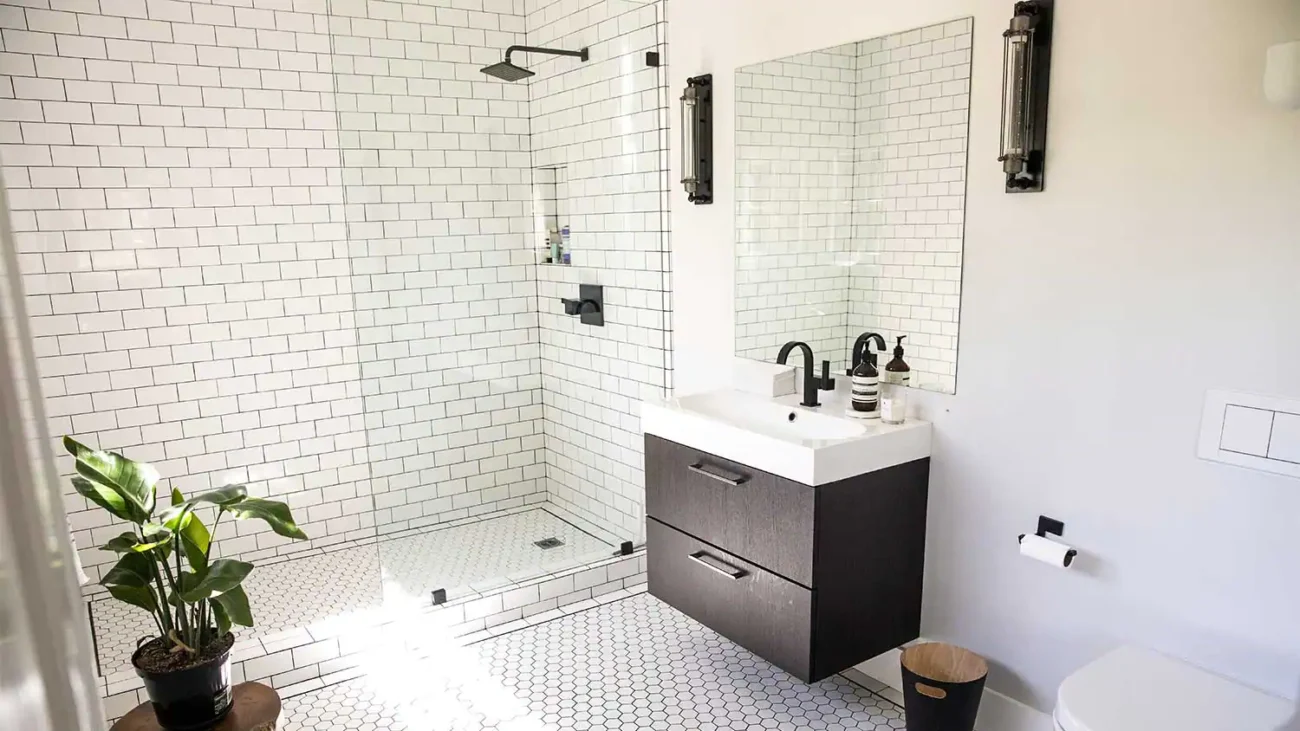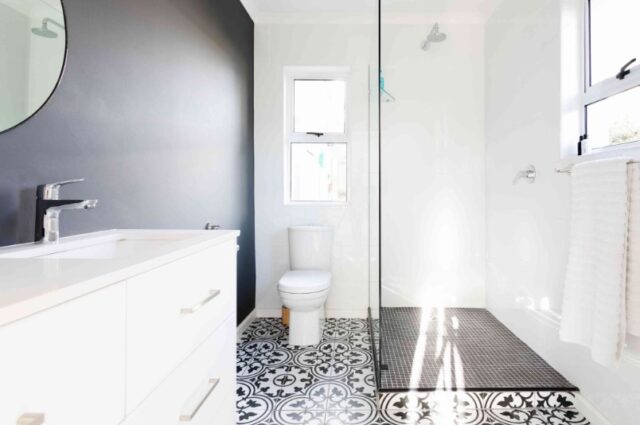
Choosing the best material for a shower floor is crucial not only for the aesthetic appeal of your bathroom but also for its functionality and durability.
The shower floor, often referred to as the shower pan, is constantly exposed to moisture, soap, and temperature fluctuations, choosing material a critical decision for homeowners looking to balance longevity, style, and maintenance needs.
Understanding the Importance of Material Choice
The shower floor material impacts the overall bathroom design, safety, and ease of cleaning. It must be slip-resistant to prevent accidents, capable of withstanding constant moisture without deteriorating, and complement the overall design of your bathroom.
With these considerations in mind, let’s explore some popular materials for shower floors, highlighting their pros and cons for an informed decision.

Ceramic and Porcelain Tiles
Ceramic and porcelain tiles are among the most popular choices for shower floors due to their versatility, durability, and wide range of designs, and when extended to wall tile, they offer a cohesive look that can visually expand the space and enhance the overall aesthetic of the bathroom.
Porcelain tiles, in particular, are known for their density and low porosity, making them highly resistant to moisture and stains.
Natural Stone
Natural stone, such as marble, granite, slate, and travertine, adds a touch of luxury and uniqueness to any shower. Each stone piece is distinct, providing a one-of-a-kind look.
Natural stone is durable and, if properly sealed, can resist water and stains. However, it requires more maintenance than ceramic or porcelain tiles, as it needs to be resealed periodically to maintain its protective layer.
Pebble Tiles
Pebble tiles bring a natural, organic feel to the shower floor, reminiscent of a serene spa or a pebbled beach. They are excellent for creating a non-slip surface due to their texture. Pebble tiles also massage your feet, offering a therapeutic experience.
However, the irregular surface can be challenging to clean, and the grout lines may require more attention to prevent mold and mildew.
Tips for Longevity and Style

To ensure the longevity and enduring style of your shower floor, consider these tips:
- Choose quality materials ─ Invest in high-quality materials that are known for their durability and resistance to moisture.
- Consider maintenance needs ─ Be realistic about the time and effort you’re willing to dedicate to maintenance. Some materials may require more care than others to keep them looking their best.
- Seal natural stone ─ If you choose natural stone, ensure it’s properly sealed to protect against water and stain penetration. Regular resealing will extend its life and beauty.
- Consult professionals ─ When in doubt, consult with design and installation professionals. They can provide valuable insights into the best materials for your specific needs and how to properly install and maintain them.
End note
In conclusion, the best material for a shower floor balances aesthetics, safety, and maintenance. Whether you prefer the classic look of tile, the luxury of natural stone, or the modern appeal of engineered materials, ensure that your choice aligns with your lifestyle and bathroom design.
With the right material and proper care, your shower floor can remain a beautiful and functional part of your home for years to come.







